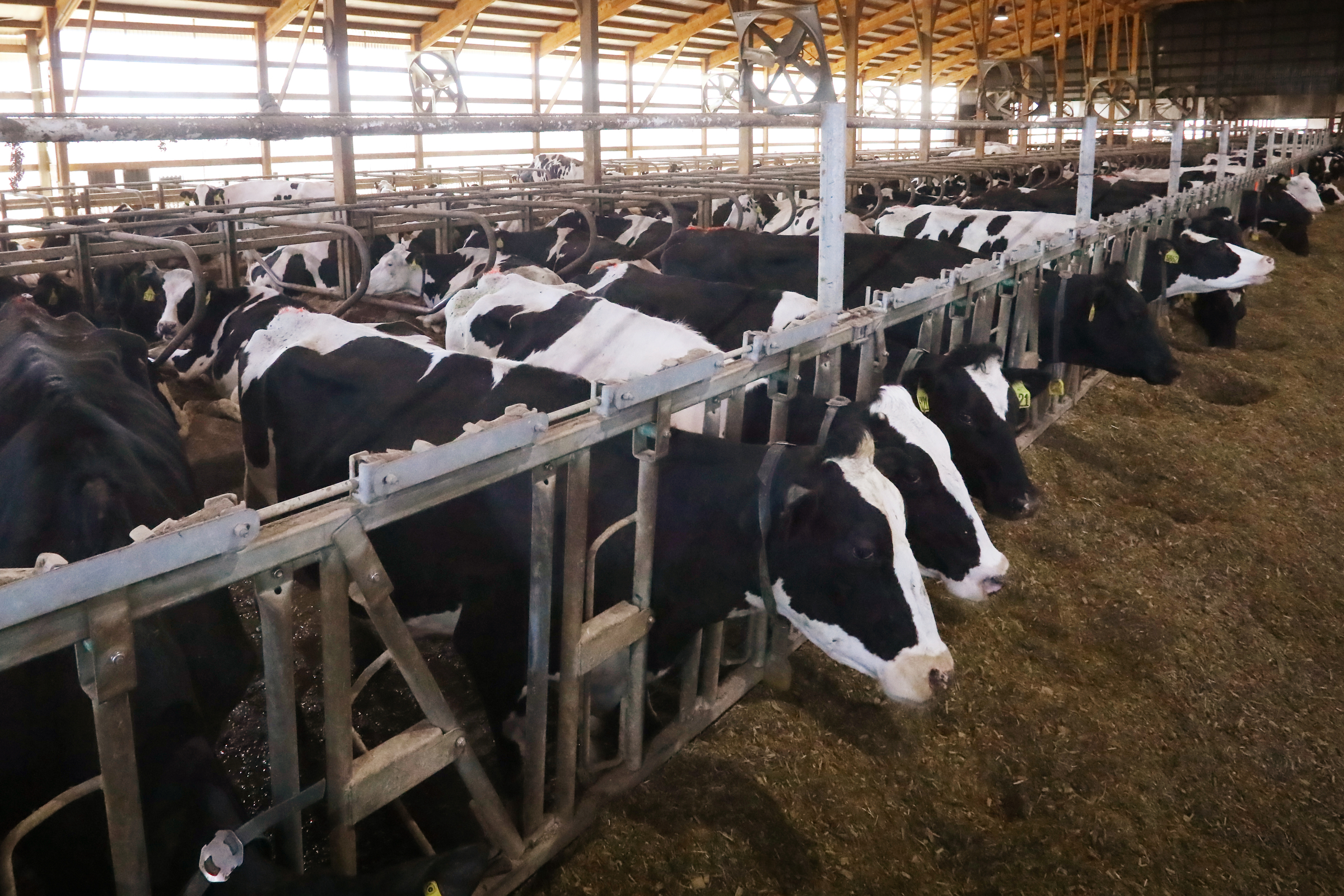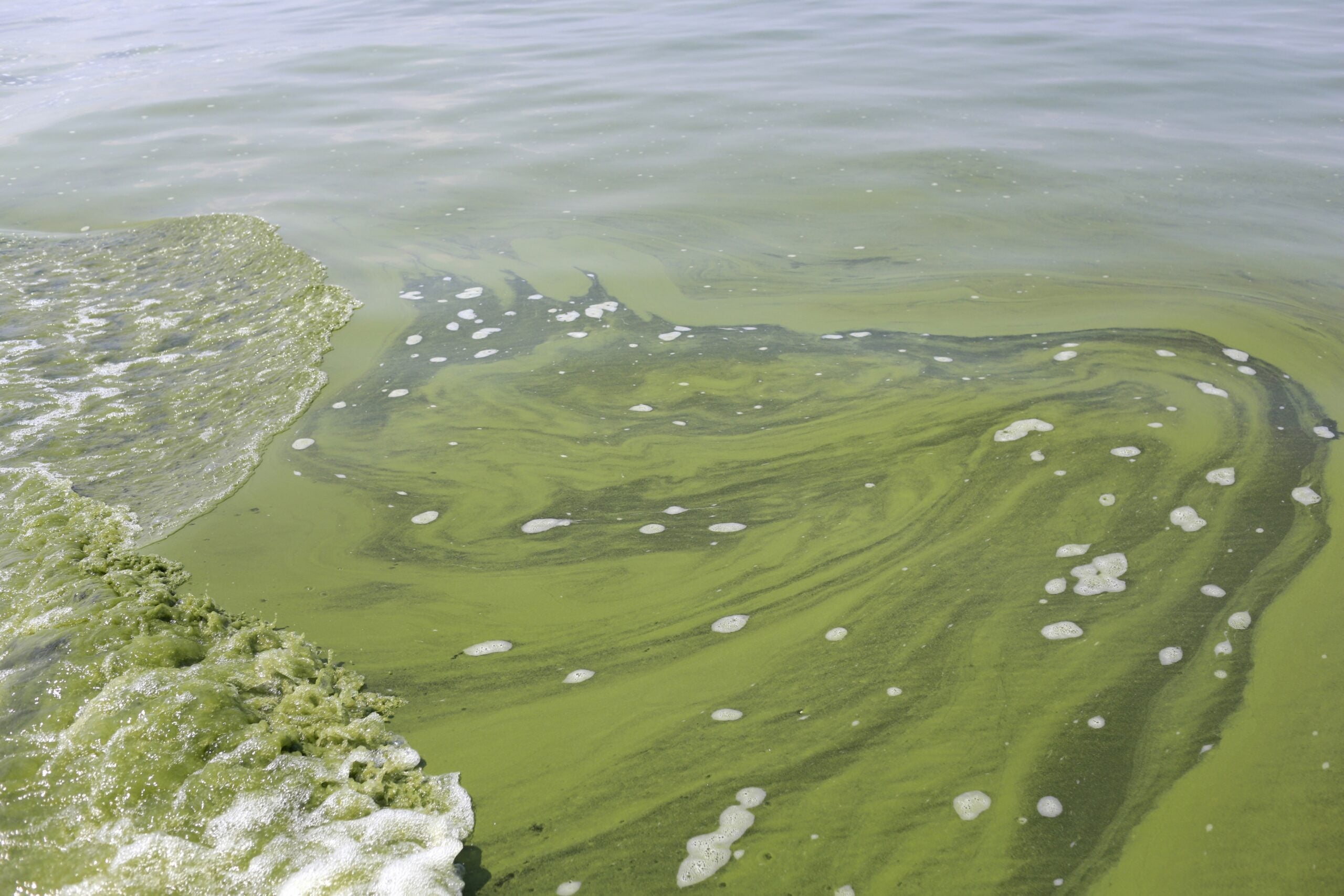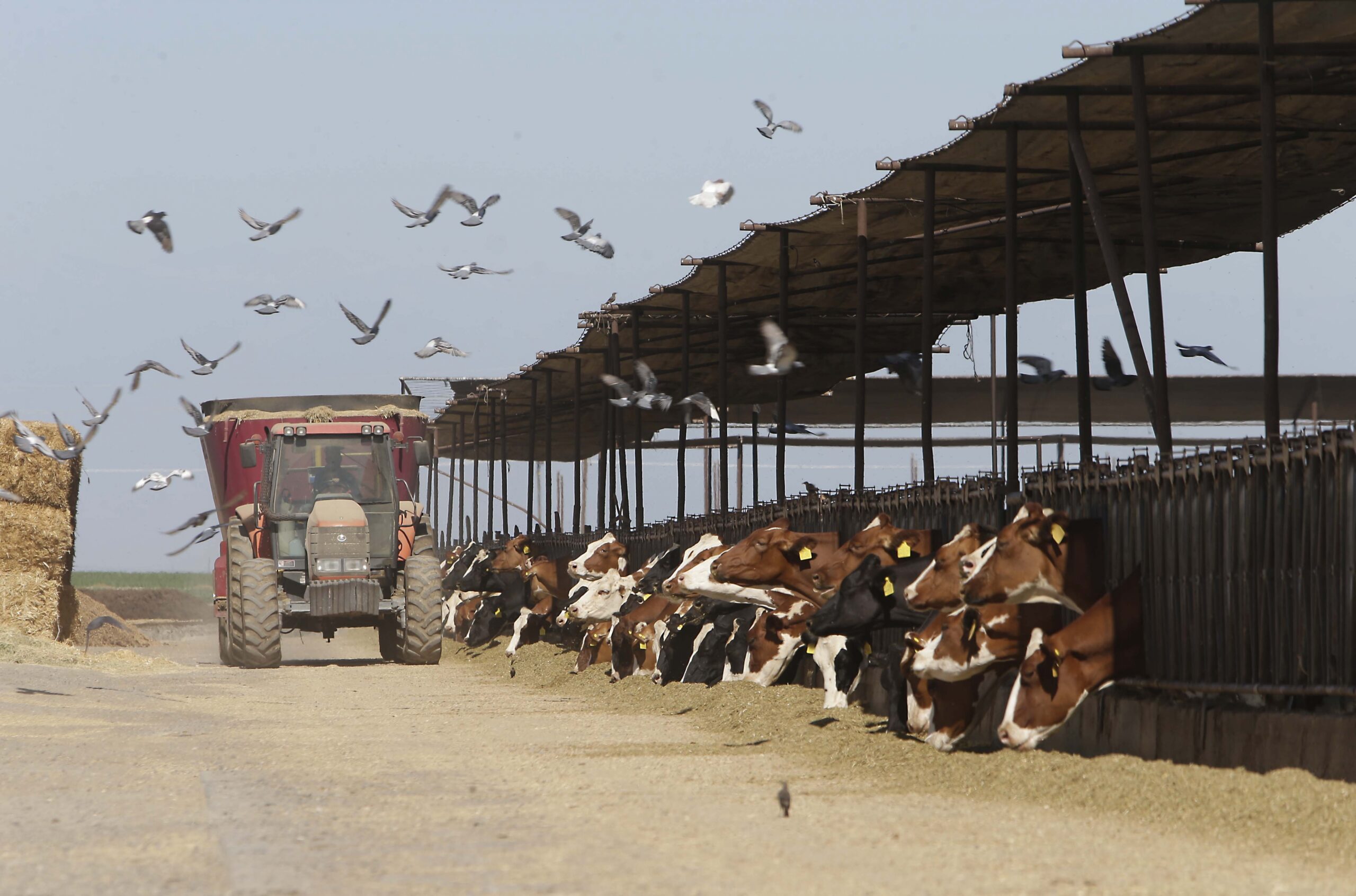Farm groups are appealing a ruling that found state environmental regulators can require large livestock farms to obtain wastewater discharge permits prior to any potential pollution of state waters.
In May last year, the WMC Litigation Center sued the Wisconsin Department of Natural Resources in Calumet County Circuit Court on behalf of the Wisconsin Dairy Alliance and Venture Dairy Cooperative.
In Wisconsin, large farms known as concentrated animal feeding operations, or CAFOs, are required to apply for wastewater pollutant discharge elimination system permits. Those operations include 335 farms with 1,000 animal units or more, which is equal to 700 milking cows.
News with a little more humanity
WPR’s “Wisconsin Today” newsletter keeps you connected to the state you love without feeling overwhelmed. No paywall. No agenda. No corporate filter.
The wastewater discharge permits require CAFOs to take certain steps to prevent manure from polluting water. Those requirements include developing response plans for manure spills, restrictions on manure spreading and nutrient management plans.
Scott Rosenow, executive director of the WMC Litigation Center and an attorney for the farm groups, said farms could face liability if they fail to apply for a permit. He called it a “burdensome regulation” and said farms may end up spending more time and money on compliance.
“Larger-scale farms in Wisconsin are already some of the most regulated entities in our state and nationally, and this permit requirement simply creates additional burdens on our agricultural community,” Rosenow said in a statement.
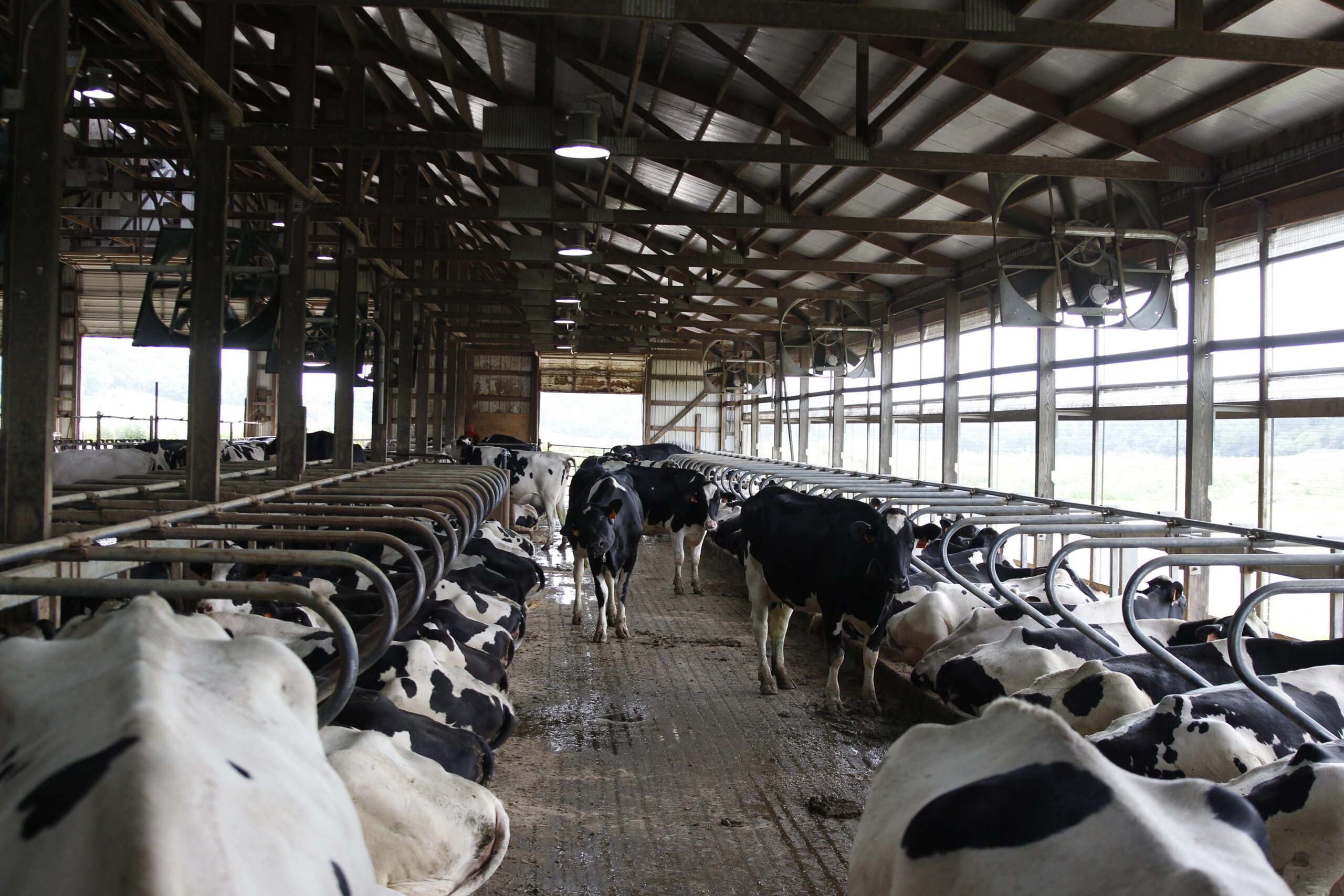
The state Department of Justice is representing the DNR in the case. In a statement, Wisconsin Attorney General Josh Kaul said safe and clean drinking water is vital for communities.
“We should be strengthening our protection of clean water, not weakening it as this case seeks to do,” Kaul said.
The WMC Litigation Center and farm groups have argued that the federal Clean Water Act doesn’t allow the Environmental Protection Agency to require wastewater discharge permits of CAFOs until they actually release waste into waterways. They point to appeals court rulings in 2005 and 2011 to argue that DNR rules on CAFO permitting requirements and agricultural stormwater runoff aren’t consistent with federal and state law.
In January, Calumet County Circuit Court Judge Carey Reed found the DNR has broad authority to require the permits, saying they don’t conflict with state and federal law.
Environmental groups like Clean Wisconsin and Midwest Environmental Advocates have intervened in the case. Evan Feinauer, staff attorney for Clean Wisconsin, said the legal challenge could severely limit the DNR’s ability to protect state waters from manure that’s stored or applied on fields.
“It can contaminate groundwater, increasing nitrates and pathogens, which makes the water unsafe to drink,” Feinauer said. “The runoff into surface waters can cause algal blooms because the nutrients in the manure can really feed that algae, nitrogen and phosphorus in particular. So whether or not the department loses that ability to have these farms meet environmental standards and these permits is a big deal.”
Around 90 percent of nitrate pollution in groundwater can be traced back to agriculture, according to the Wisconsin Groundwater Coordinating Council.
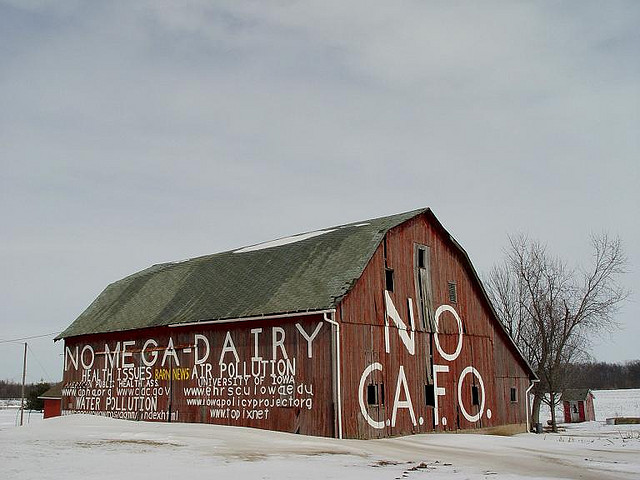
Cindy Leitner, president of the Wisconsin Dairy Alliance, told WPR that farms aren’t allowed to pollute state waters regardless of whether they have a permit. She said operations have faced delays and mounting costs to hire engineers and build projects to comply with the agency’s permitting requirements.
“We aren’t people that intentionally pollute the land,” Leitner said. “We need the land. We need the land to be good. We need the water to be good. We need that for our farms and for our animals and for our families.”
Midwest Environmental Advocates has said federal appeals court rulings that have prevented the EPA from requiring such permits have led to lacking oversight of large livestock operations in states like Indiana, Iowa and Ohio.
Farm groups say they want to change the presumption that CAFOs are polluters. Kim Bremmer, executive director of Venture Dairy Cooperative, said large livestock operations would still need to comply with state manure regulations or face stiff fines for any pollution.
“We’re at a time where we’re losing farms, that is no secret,” Bremmer said. “And I have calls from members all the time saying, ‘Why should we even stay here? We have this overbearing regulatory framework.’”
Bremmer said polluters must be held accountable regardless of the size of any farm, saying they’re seeking fairness and certainty. While he’s sympathetic to differing treatment of small and large farms, Feinauer said there’s good reason for that. CAFOs are capable of producing millions of gallons of manure or wastewater each year.
“Mismanagement of manure at that scale simply has consequences for Wisconsin’s waters,” Feinauer said.
The DNR has reported that at least 10 million gallons of manure spilled between 2007 to 2019, according to the Legislative Fiscal Bureau.
The lawsuit is not the first to challenge DNR’s authority to require permits for CAFOs. In 2017, the Dairy Business Association sued the agency in part over its permit requirements, dropping that claim as part of a settlement with the DNR. Large farms have also challenged the agency’s authority to impose permit conditions on their operations. In 2021, the Wisconsin Supreme Court ruled the DNR had authority to impose permit requirements on large farms to protect water quality.
Wisconsin Public Radio, © Copyright 2025, Board of Regents of the University of Wisconsin System and Wisconsin Educational Communications Board.

